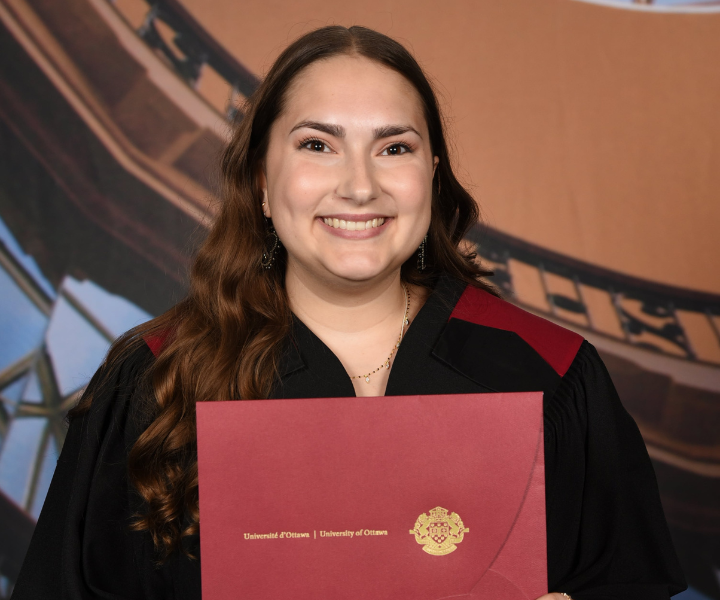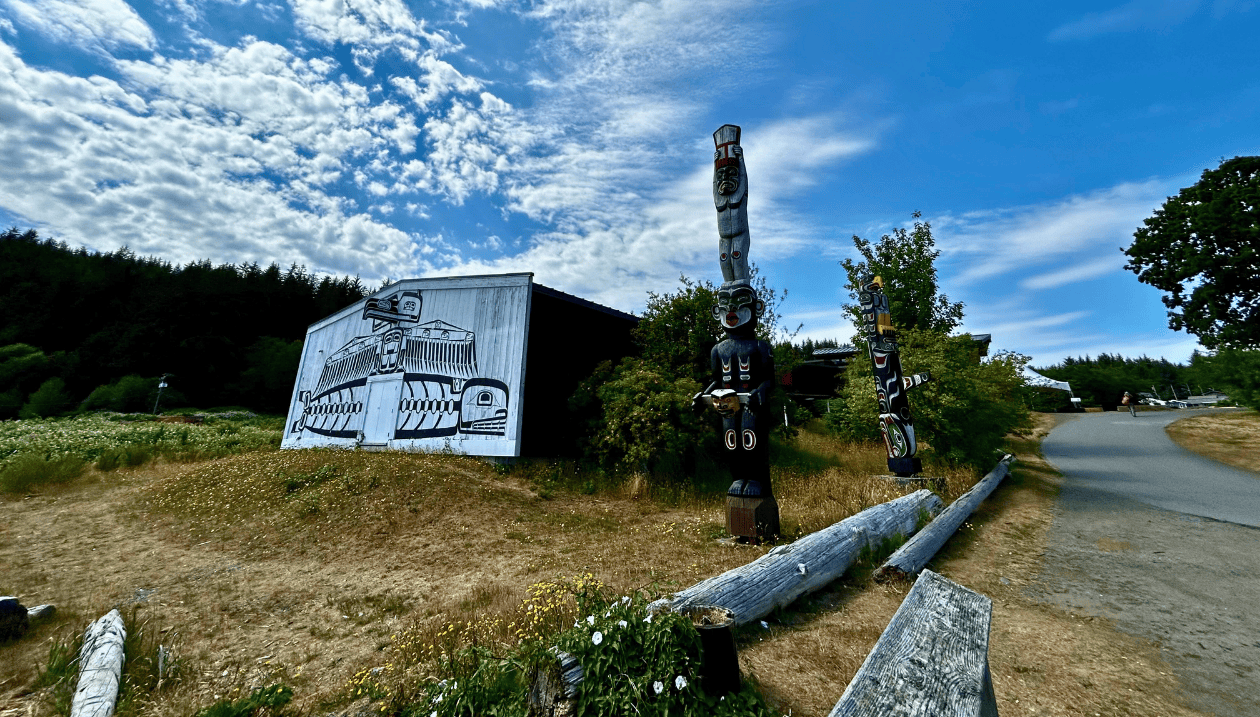The Mashkawazìwogamig Indigenous Resource Centre: A place of belonging and sharing
The more time Tiffany spent at the Centre over the passing weeks, the more it became a sort of second home. A rather reserved person by nature, she was won over by the welcoming atmosphere, a place where people talk, study, laugh and learn. Inspired by the Centre’s environment of sharing and collaboration, Tiffany would become a mentor there; she led study sessions, gathering information on available scholarships, and allayed the concerns of new students. In this key role, she guided other Indigenous students, just as others had guided her when she was starting out. “It wasn’t just me explaining things. It was collaborative,” she says. The Centre would become a place where she could be herself, without having to justify her identity, and where bonds were forged naturally.
In this safe space, she also discovered a rare kind of acceptance.

“At the Indigenous Resource Centre, we could simply be ourselves. We didn’t question ourselves, we didn’t have to prove who we are.”
Tiffany Angel Dunphy
— 2025 health sciences graduate
One moment remains engraved in her memory—the first time she was given a pair of beaded earrings, a discreet but powerful symbol of her inclusion in the community. “It was really touching,” she says.
At the Centre, she found the University community she had imagined for herself, and friendships that were destined to last.
Serving Francophone students
Tiffany’s dedication extends beyond the Centre. She also devotes her time to the Indigenous Students’ Association, where she started out as a member and then became Vice-President, Francophonie. It’s a role she takes seriously, even if there aren’t many Francophones around. “There were maybe five of us with French as our mother tongue in the Association,” she recalls. She translates messages, is helping to rewrite the constitution, and takes part in internal discussions with calm determination.
Tiffany ensures that the voices of Francophone Indigenous students are heard. It’s a way for her to build bridges between languages, experiences and needs.
A campus-wide Indigenous presence
Tiffany has found the Indigenous presence she’s been looking for, not only at the Centre and in the Association, but also on campus through Indigenous perspectives that are being increasingly addressed in class, murals by Indigenous artists, traditional medicine gardens, the September 30 commemoration events, the Association’s quarterly dialogue with senior University officials, and so on. She sees all these as concrete steps that signal a major shift towards Indigenization of the campus. “The University really seems to want to change and to include more Indigenous perspectives.”
Towards medicine that is sensitive to Indigenous realities
Tiffany, a recent health sciences graduate, is getting ready to begin medical studies at the University of Ottawa in the Indigenous component of the program. When she looks to the future, Tiffany sees herself practising medicine that is sensitive to Indigenous realities and rooted in listening and understanding.
She moves forward with confidence, strengthened by the bonds and friendships she has forged and the formative experiences she has had. What comes next is not a new beginning for her, but a continuation of her commitment.

